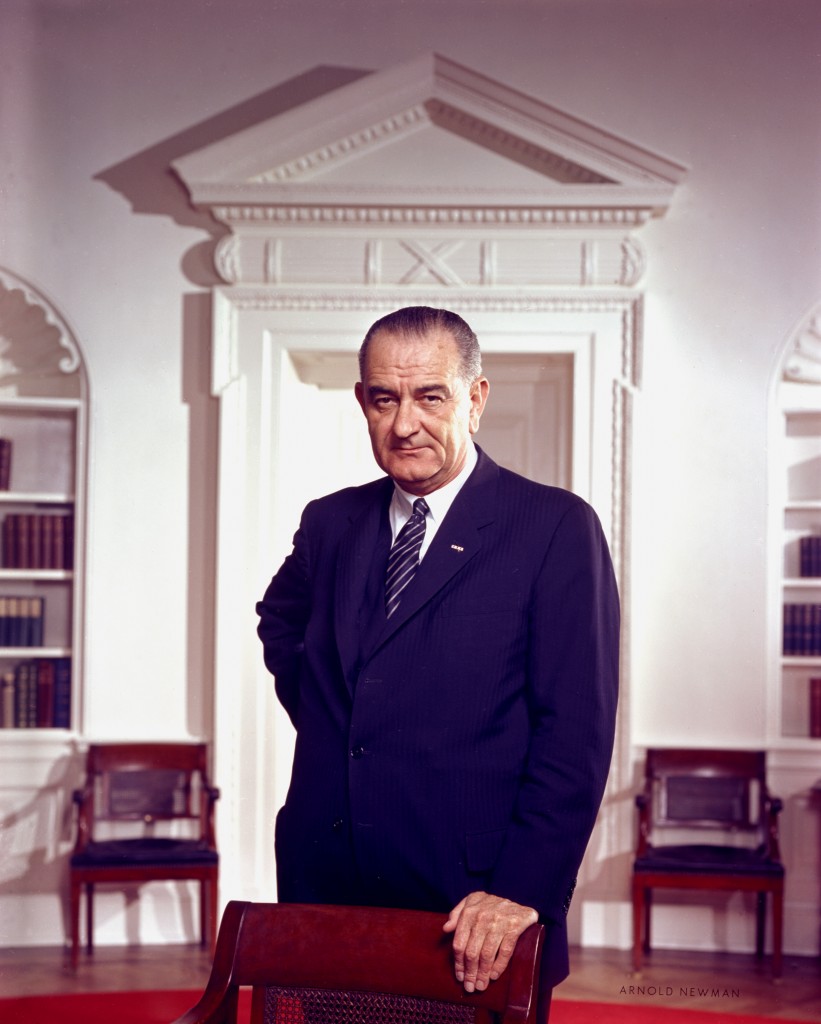I have just finished the fourth installment of Robert Caro’s epic biography of Lyndon Baines Johnson, and in keeping with the preceding three, it is exhaustive, dramatic, and moving. Caro has given thirty years of his life in re-inventing the American biography through the persona of Johnson, focusing like a laser through the complex machinations of a immensely talented but flawed individual on the recognition, utilization, manipulation, and abuse of power as the driving force in this individual’s life. This most recent treatise takes Johnson from the pinnacle of legislative power as Majority Senate Leader in 1958, through the humiliations of the Vice Presidency under a regime that distrusted and disliked him, past the searing intensity of a nation’s stunned reaction and grief to the assassination of President Kennedy, to the achievement of the pinnacle of power of the Presidency with Johnson’s skillful dis-assembling of the logjam that had prevented America from addressing its “problem” , the denial of civil rights to a portion of its people on the basis of their race, codified since the Civil War. Living through the current administration’s distaste for detail and political discourse, the book The Passage of Power is a stunning reminder of what can be accomplished when the Presidency is in the hands of an individual that understands its legislative checks and balances and the perspective of history in the American Story.
The extent of Caro’s biography, after thirty years on still incomplete in the telling of the story of the majority of Johnson’s Presidency,(still to come), joins the Iliad like treatments of the Civil War by Shelby Foote and the biography of Lincoln by David Herbert Donald as re-framing iconic American moments in journey frameworks for the protagonists. Journeys as a reality of their origin and completion require chronology and progressive layering to achieve complete understanding of the outcome, and as such, starting Caro’s treatise with The Passage of Power would be ineffectual. It doesn’t take thirty years to conquer Caro’s biography but it does take some serious hours of concentrated study. The story starts with The Path to Power highlighted by Caro’s framing of the very essence of Johnson in his unforgettable description of what it was like to live, and survive, in the desolate hill country of Texas at the turn of the twentieth century, forever linking Johnson’s roots to his compelling will to utilize the nation’s resources to attempt to reverse poverty and balance its inequities. This is followed by Means of Ascent, the shortest and darkest chapter of the biography showing Johnson’s ruthless and desperate attempt to cling to power through any manipulations necessary, including the probable stealing of the 1948 Texas Senate election, barely avoiding his permanent disappearance from the aisles of power. The behemoth in the biography is Master of the Senate , Johnson’s meteoric rise to the pinnacle of the Senate as Majority Leader and the skillful positioning of himself as the country’s “inevitable” leader by succeeding at overcoming concrete- hard entrenched Southern interests in accomplishing the first comprehensive civil rights legislation since the Civil War. Each book builds on the previous until a complex prism of Lyndon Johnson of profound core of understanding of the common man’s personal struggle cracked by egotistical need for blatant, naked power emerges.
The Passage of Power is highlighted by the metamorphosis of Johnson almost overnight from country rube to statesman and primordial political force, as he is thrust into the pinnacle of power as President by the stunning horror of the Kennedy assassination. To the surprise of everyone, Johnson mutes his most overbearing features of bluster, bullying, and undercutting, to rise to the occasion in profound terms. In the unstable weeks following the murder of the President, he achieves a smooth transition, clarity, and spectacular focus that no one in the Kennedy administration thought he was capable of, and sets out the goal of completing President Kennedy’s stated but moribund goal of universal civil rights by the 1964 elections. In a few short months he proves to be an eloquent statesman for the cause, magnificent political operative, and powerful executive that leaves the anti-Johnson forces consumed with unseating him and replacing John Kennedy with his brother Robert as President in tatters and retreat. Within eight months of the assassination the current, and future, President is clearly Lyndon Johnson, in a stunning reversal of the expected ebb of this man’s career though one step short of his life’s goal, the throne of Franklin Roosevelt, in the committed journey of this man from the dusty heat of the Texas back country.
Robert Caro is in his late 70’s and one hopes he does not befall the fate of William Manchester, who fell short by the ravages of age, in completing his multi-volume magisterial biography of Churchill. Caro states he is in the process of completing the final volume, the presidential years of Johnson subsequent to the Civil Rights achievement of 1964, in which Jonson’s flaws of character eventually overwhelm his re-framing of domestic American life with his immersion in the Vietnam conflict. The journey so spectacularly told by Caro so far is in mold of greatness in literature, and I wait with great anticipation the final volume, that completes Johnson’s journey as the forces of raw fate expose his internal contradictions and set the stage for a country’s calamity of which it continues to suffer the scars to this day.
The blather that passes for great speeches in today’s world show how important a belief system is to the capacity to explain a nation’s course. Whatever his flaws, Johnson believed in the fundamental rights established in his nation’s constitution and framed his argument for civil rights not on egotistical righteousness, so repetitively displayed by our current leader, but in the strains and choirs of a nation’s historical reason for existence and foundations of principle. We would do so well to have our current challenges framed in the cadences of another time.

